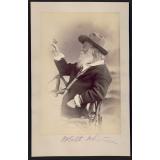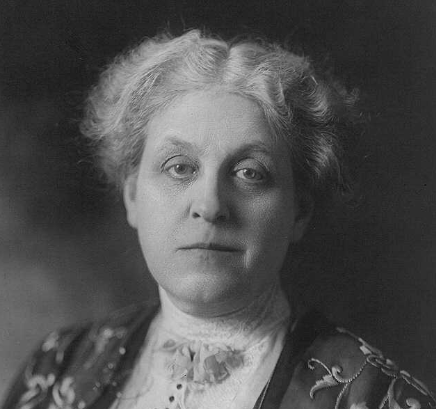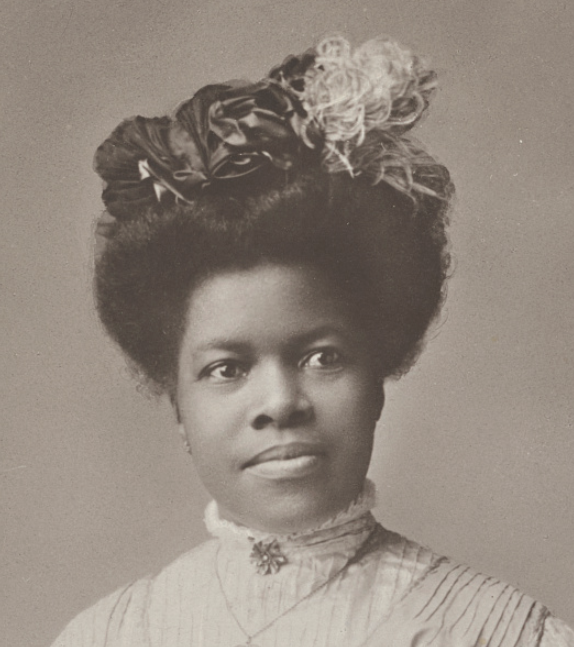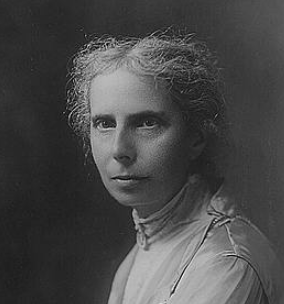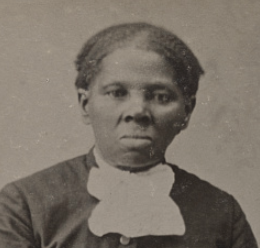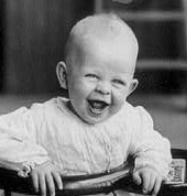I have once again asked for permission from my former colleague,  Elizabeth Cutter
, to share a piece she wrote recently. I believe her beautiful writing will move every educator who reads it here, for we have all encountered students like the boy named Jonny in Beth's writing. I promised Beth that I would be able to find a few primary sources at the Library of Congress to supplement her story, so be sure to look for them at the end.
Elizabeth Cutter
, to share a piece she wrote recently. I believe her beautiful writing will move every educator who reads it here, for we have all encountered students like the boy named Jonny in Beth's writing. I promised Beth that I would be able to find a few primary sources at the Library of Congress to supplement her story, so be sure to look for them at the end.
First, a word about the Black Forest, where Beth lives and where Jonny grew up. It's a heavily pine forested area adjoining Colorado Springs. The inhabitants fall basically into three categories: 1. Descendants of original pioneer families, independent minded and stubbornly rural, 2. Dirt poor families, down on their luck, with all the life challenges connected to their tough stories, and 3. Well-to-do families in beautiful new houses, some rebuilt following the devastating Black Forest wildfires of 2013 that burned over 14,000 acres of forest land. In other words, it's quite demographically diverse.
And now, here is Beth's remarkable remembrance, along with her review of the new novel by Barbara Kingsolver, Demon Copperhead.

The hardest job I ever loved was as an assistant principal at a local high school. I loved it because of our shared ideals around ensuring every student’s success, and it was hard because we couldn’t get the job done. The protagonist of a book I read recently reminded me of one of my own failures.
Jonny (not his real name) was a Black Forest boy, born and bred. I had taught one of his uncles a quarter of a century before and had a vague sense of how his family extended. Our records system included a collection of students with different last names, all Jonny’s siblings, half-siblings, or steps, all from the oldest neck of the woods. Jonny lived with his grandma – or at least hers was the only phone number we knew to call when we caught him smoking or skipping. She was a sweet lady, always apologetic and polite, but Jonny was probably the least of her worries. His mother was dying of cancer.
We loved Jonny. Yes, he broke the rules, but from environmental pressures, not malice aforethought. When a discipline referral with his name on it would come across my desk, I could always find him in a particular hallway during lunch, far from the cafeteria, sitting with the same small group. As the rest of them glared, Jonny would get up, fussing a little for show, and let me link arms with him for the perp walk to the office. I can still hear him protesting, “This is jacked! This is jacked!” – but only until they couldn’t hear him anymore. He never skipped detention, and he never sassed, me or anyone else. I tried everything I could think of to get him to quit smoking – showing him gross pictures of lungs, offering to pay for nicotine patches myself, bribing him to get into a cessation program. At one point I bought him a young adult novel, S.L. Rottman’s Hero, to read in detention, hoping he would be inspired. The next week he stopped me in the hall to ask if I had any more books like that, so I got him Rough Waters. Suspending or expelling this skinny ragamuffin would simply have deprived him of an education, not stopped his nicotine habit.
The following year, though, it wasn’t just that Jonny smelled like a cigarette. His eyes were bloodshot and glassy, his affect was lethargic and unfocused, and his attitude was apathetic. We ramped up the disciplinary action, but within a few weeks he stopped attending school altogether. Sometimes we would see him in the parking lot at lunch, and I would have to go out and get him to leave. No longer was he that sweet kid asking me for another book. He had become a cocksure punk, telling me all about how he didn’t need school. A few years later, his uncle let me know: Jonny had died of an overdose.
The title character of Barbara Kingsolver’s new novel, Demon Copperhead, brought that heartache back to me. If something about those syllables rings a bell, it’s because Kingsolver took her inspiration from Charles Dickens, reimagining his semi-autobiographical novel, David Copperfield, as the story of an orphaned boy growing up in Appalachia. His real name is Damon Fields, but between the copper-colored hair he inherited from his Melungeon ancestors and the ease with which southern children might mispronounce Damon, he finds the nickname easier to accept than to fight.
Born to a drug-addicted teenage single mother in a trailer in Lee County, Virginia at the beginning of the opioid crisis, Demon is raised by that makeshift village that surrounds the most hapless in our society: an assortment of distant relatives; an overextended social services system; and a sorry few teachers who recognize the diamond under the dirt. That he survives at all is owing mostly to his own innate dignity, cynical humor, and resilience.
If you have even a passing familiarity with David Copperfield, you will recognize the echoes in Demon Copperhead: kindly Mrs. Peggot is the Appalachian counterpart to Dickensian nursemaid Peggotty; creepy U-Haul Pyles is a reborn version of the corrupt Uriah Heep; childlike waif-addict Dori is David Copperfield’s first love Dora Spenlow reincarnate; the charismatic quarterback/drug dealer Sterling “Fast Forward” Ford is the late 20th century equivalent of exploitative James Steerforth. In neither book are these characters stereotypes. Having lived and worked in as demographically diverse a region as Black Forest, I recognized them all. One critic has called Demon Copperhead Kingsolver’s “fierce examination of contemporary poverty and drug addiction tucked away in the richest country on earth.” I saw it up close and personal.
This book is not unmitigated tragedy, though. It has moments so beautiful they can make you cry. Demon’s great uncle Dick, severely disabled from birth, is a voracious reader who laboriously copies key quotes from his readings onto paper kites. The scene where Demon wheels him outside to actually release one into the wind is one for the ages. One of the Peggot daughters, a nurse practitioner named June, returns home from the big city to tend the needs of her home county, faithfully serving the addicted and destitute and crusading against Big Pharma year after year, making progress in the tiniest of increments.
And Demon – predictably, since he is the narrator – does survive. He has just one grain more of good luck than my Jonny ever did, one more caring person in his corner, one more chance at success. Do read Demon Copperhead; you will be moved.
-Elizabeth Cutter, November, 2022
I have not yet read Demon Copperhead, but rest assured I plan to do so. Meanwhile, knowing that Charles Dickens had twice visited the United States, I was curious about what I might find at the Library of Congress related either to his visits or to his worldwide fame as a chronicler of poverty in London. I was not disappointed. Below are three resources that an English teacher might use to supplement any study of Charles Dickens.

https://www.loc.gov/item/2003653043/ (There are many more portraits of Charles Dickens at the Library of Congress, but I liked this one in particular.)

https://www.loc.gov/item/01026779/ American notes for general circulation. This is Dickens' book length account of his first voyage to the United States published in 1850. He travels to America on board the Britannia and visits Boston, Lowell (MA), Worcester, Hartford, New Haven, New York, Philadelphia, Washington DC, Virginia, Baltimore, the Alleghany Mountains, Pittsburg[h], Cincinnati, St. Louis, Lake Erie, Niagara, and also Canada. One chapter is titled, "A Jaunt to the Looking-Glass Prairie and Back." He also devotes an entire chapter to slavery.

Obituary of Charles Dickens as published in The Evening Telegraph, Philadelphia, Pennsylvania, 10 June 1870.
https://chroniclingamerica.loc.gov/lccn/sn83025925/1870-06-10/ed-1/seq-1/
9 - 12 13+ English/Language Arts Charles Dickens David Copperfield Appalachia
Replies displayed by creation date
As one who has taught in rural Appalachia, I can relate to Beth's story (even though it took place in the Rockies). Many of my students were raised by their grandparents. Thank God for them. I just hope that the vicious cycle doesn't deplete the supply of caring grandparents...We are still living with the consequences of the opioid epidemic here. I heard this morning on WV Public Radio that West Virginia has the highest infant and maternal mortality rates due to the drug epidemic...Thank you very much for this post, Mary. I will definitely add Demon Copperhead to my "to read" list. (I am also a fan of Dickens' work.)
Testimonials
- I love that there is new info on the site daily!
- I had a wonderful time working with the Library of Congress and learning about all of the resources at my fingertips!
- The TPS Teachers Network has an equal exchange of ideas. You know it's not a place where you're being judged.
- My colleagues post incredibly fine resources and ideas....the caliber of the suggestions and resources make me feel that I take a lot from it. It's a takeaway. And I hope that I can give back as much as I get.
- Going into this school year, I have a fantastic new resource for my own instruction and to share with my colleagues!
- I am very glad that I discovered the TPS Teachers Network through RQI. Great resources can be hard to find out there on the internet!

